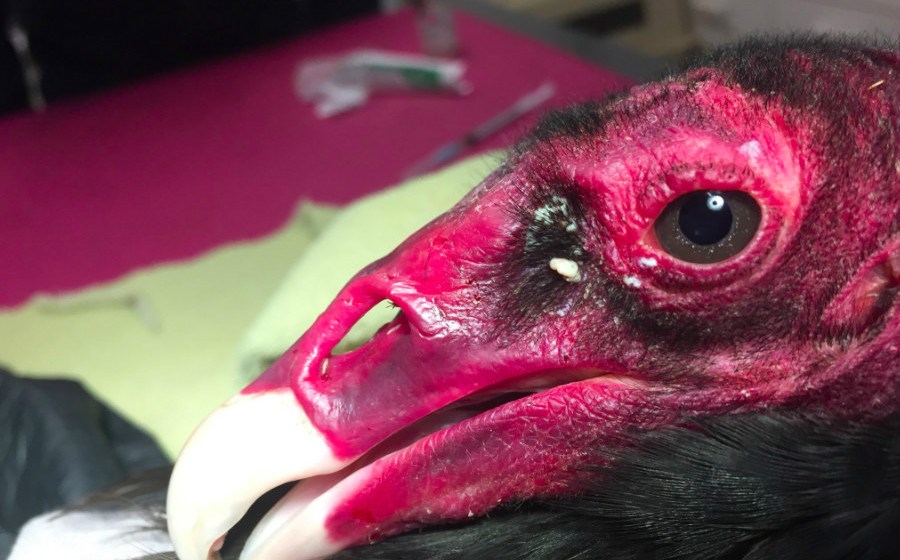 Photo OWL
Photo OWL
The Orphan Wildlife Rehabilitation Society (OWL) is urging hunters to use lead-free ammunition after a turkey vulture was found on the Sea to Sky Highway suffering from lead poisoning.
Lead bullets fragment when an animal is shot and "an eagle only needs the size of a grain of rice to become sick and possibly die," says Martina Versteeg, raptor care supervisor at OWL's rehab centre in Delta. Last year OWL took in 20 birds with lead poisoning and so far in 2018 they have received 12.
Versteeg says the turkey vulture is being treated with chelation therapy, which draws the lead out of the bloodstream and "hopefully he'll recover."
She says there are alternatives to lead ammunition such as copper and steel. "Right now they're a little more expensive but in the long run, wildlife health and human health will be improved by switching over because humans can also get lead poisoning."
Every year 375 million cartridges are imported into Canada releasing 5,200 tonnes of lead into the environment, which represents the single most significant source of lead releases onto the land in Canada, .
"We're hoping that we can educate people to make the switch. We're not anti-hunting or anything we just want people and animals to be safer out there," says Versteeg.
OWLÂ rehab centre's raptor care manager Rob Hope adds that lead ammunition is not the only problem. He says lead weights and sinkers used for fishing can cause secondary poisoning in eagles that eat fish.
If people see a raptor that appears lethargic or exhibiting abnormal behaviour "definitely give us a call. Time is critical especially when we're dealing with these cases. The sooner we can get the animal the better the odds are that it will survive," says Hope.
The public can learn more about the issue and watch a raptor release at OWL's open house on May 5 and 6.


